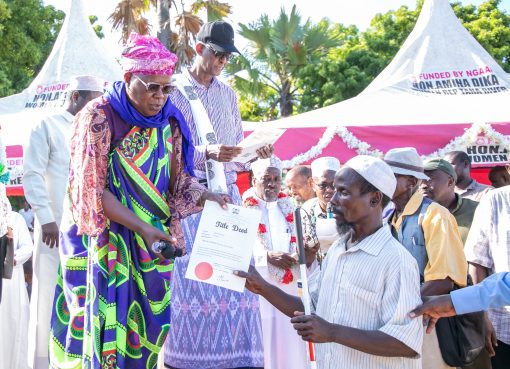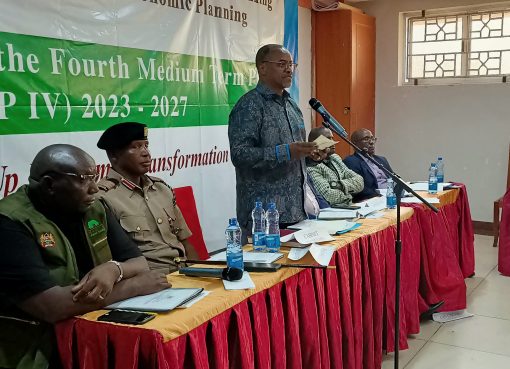Seven out of 10 Kenyans, or 68%, believe that devolution has improved health services in their counties.
State Department for Devolution Principal Secretary (PS) Teresia Mbaika said devolution’s main aim is to bring power closer to the people by allowing citizens to participate in governance and decision-making.
The PS, speaking in Nairobi on Monday during the release of the Twaweza East Africa research findings, said that devolution has had several achievements since 2013, such as the formation of intergovernmental relations systems that facilitate consultation, cooperation, and coordination between the two levels of government in serving citizens.
“Devolution has enhanced the capacity development of national and county governments to enable them to implement their respective functions and powers under the devolved system of governance and mobilise resources from local and international partners to support county governments in delivering services to citizens, among others,” said Mbaika.
The PS explained that the majority of Kenyans agree that devolution has brought a number of positive changes, with 3 out of 4 Kenyans (75%) saying that devolution has led to an improvement in services and 6 out of 10 (58%) reporting seeing positive economic developments in their counties.
“Specifically, 7 out of 10 citizens (68%) say that devolution has improved health services in their county. Importantly, more women, young people, and those who earn their income from agriculture are more likely to say health services have improved due to devolution than their older, richer male compatriots,” said the PS.
She explained that three out of ten Kenyans (32%, up from 23% in 2018) now say it is very easy to meet the leaders of their county; three out of ten (28%, up from 19%) say it is very easy to influence county decision-making; and (32%, up from 20%) say it is very easy to access information.
These findings were released by Twaweza East Africa in a research brief titled Power to the People: Kenyan citizens ‘experiences and opinions on ten years of devolution with data from Sautiza Wananchi, Africa’s first nationally representative high-frequency mobile phone survey.
Respondents were selected through random sampling from a database of contacts from previous surveys to establish a new representative panel of the country’s population. For this brief, data was collected from 3,746 respondents in the 10th round of the special panel, conducted between July 19 and July 27, 2023.
Around half of Kenyans also agree that devolution has brought benefits in terms of inclusion and accountability, including greater involvement in decision-making (50%); more transparency and accountability (49%); and fairer distribution of resources (53%).
Significantly, 8 out of 10 Kenyans (83%) support devolution, including 47% who support it strongly. Tana River, Marsabit, Turkana, Makueni, and Elgeyo Marakwet are the counties in which more residents support devolution.
Similarly, half of citizens (54%) say devolution is being implemented well.
In 2015, 2 out of 10 citizens (19%) had attended county meetings, which by 2023 had risen to 3 out of 10 (28%).
Similarly, in 2015, 1 out of 10 citizens (8%) said they asked a question or raised an issue at such a meeting, which by 2023 had risen to 2 out of 10 (18%).
However, attendance and active participation are still dominated by men, older people, and those in rural areas.
By Onyango Venah





